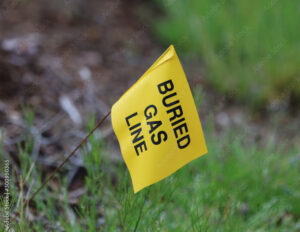Personal Injury Lawyer Fighting For Injury Victims
We can help after Car Accidents, Truck Wrecks, Natural Gas Explosions and Barratry in Texas
The Carse Law firm will work tirelessly to investigate and hold the parties involved in the wrongful death of a loved one responsible, ensuring that justice is not denied.
When you hire the Carse Law Firm, you get the Carse Advantage. We do not represent any insurance companies, and we never charge a fee unless we collect a settlement or a judgment after trial. As a Texas personal injury lawyer, Tom Carse is devoted to getting justice for you and focuses on holding people, employers and big insurance companies accountable for their actions.

What We Do
In Texas and across the country, house explosions due to natural gas dangers are increasingly making headlines, blowing homes to bits and sometimes leveling entire streets. More than 177 million American homes rely on natural gas today according to the American Gas Association.
At the Carse Law Firm, we’re finding a growing number of deaths, injuries, and property damage of all types due to problems with this plentiful, odorless and colorless fossil fuel. From 2004-2015 in Texas alone there were more than 320 reports of cut gas lines, with 19 deaths and 66 injuries as a result.

In many urban areas, gas meters and pipelines are old and deteriorating. In newer construction, materials can be substandard and installed improperly. In any residential neighborhood or commercial development, natural gas lines can be dangerously close to other underground utilities. Maintenance and repair crews, or fiber optic and cable installers can easily and negligently cut a gas line, and you may never know it.
Suppliers add a blend of chemicals known as “odorants” to natural gas in order to give it an unnatural and offensive smell. Why? When that smell is detected, it alerts the homeowner to the potential of a leak requiring immediate attention.
But with an underground natural gas leak, the contact with certain soils has the potential to filter the odorant out of the gas, making the leak even harder to detect and even more dangerous.
Victim of a Natural Gas Explosion? Contact Us
A natural gas leak can have catastrophic consequences. But when disaster strikes, we are ready to respond. Our experienced attorneys can help get your life and your home back together, so call the Carse Law Firm even if you just have concerns and questions about protecting yourself. For example, we recommend that every home have a natural gas detector, which can be purchased at most hardware stores.

We Roll Up Our Sleeves and Work Hard For Every Client—One Injury Case at a Time
Natural gas leaks can happen without the homeowner even realizing it. Some people cannot smell the odorant added to natural gas, while the surrounding ground may absorb the smell. But the danger remains. If you were a victim of a natural gas explosion in Texas, contact the Carse Law Firm today.
Because of significant road safety risks such as drinking and driving, DUI accidents in Texas are often deadly. According to the United States Census, nearly 50 percent of Texas traffic accident deaths in 2009 were caused by drunk drivers. Add to that the increasing occurrence of distracted driving accidents—due to people texting behind the wheel, making cell phone calls and using dashboard tablets—and the numbers are even worse. All of these reckless and negligent drivers can cause a broad range of car accident injuries, including traumatic brain injury, spinal cord injury and severe back and neck injuries. But even whiplash, which many insurance company adjusters will say is minor, can mean months or years of physical therapy and a lifetime of pain. Victims of rear-end accidents and head-ons alike need a reliable, relentless car accident attorney who will work hard for their justice so they can recover—physically, emotionally and financially. We know you’re probably in shock, unsure how to manage as the bills pile up, wondering if you even need an attorney. Sometimes car wrecks seem straightforward, as simple as a driver running a red light and hitting you broadside. Or the car next to you veered into your lane and forced you into a parked car. But when it comes to car accidents, nothing is ever straightforward. If the negligent driver asks to handle it without involving your insurance company, don’t listen. You not only need to call the insurance company and the police, you need to call a dedicated, fearless law firm that will put you first. And that’s where we come in.

Car Collision in Texas? Call Us Today
At the Carse Law Firm, we work tirelessly on behalf of our clients to help make sure all responsible parties are held accountable to the full extent of Texas Law, whether it’s filing a lawsuit against the guy who ran into you because he was drunk or texting, the woman who sideswiped you while making a cell phone call or the car manufacturer who installed defective brakes in your car. No matter what the circumstances, there are several important steps to take after an accident, starting with getting proper medical care. Once you’ve received any immediate medical attention you need, obtained the other drivers’ contact and insurance info and made sure the police file a report, the next thing to do after an accident is call an experienced, effective Texas personal injury attorney with a proven track record. And that’s us.
We Roll Up Our Sleeves and Work Hard For Every Client—One Injury Case at a Time
Let the Carse Law Firm aggressively pursue the negligent driver’s auto insurance coverage on your behalf. If you have been injured or lost a loved one in a car accident, we can pursue wrongful death benefits so you can start putting your life back together. Call the attorneys at Carse Law Firm today 972-CALL-TOM or contact us online for a free evaluation. Every discussion is confidential and you won’t pay a nickel unless we win your case for you. Serving the entire Dallas, Garland, Arlington and Mesquite, TX region one client at a time with compassion and personal attention.
Motor Vehicle Accidents
If you or a loved one has been severely injured or killed in a motorcycle or bicycle accident, contact motorcycle and bicycle personal injury attorney Tom Carse today at 972-CALL TOM for a free consultation or ask Tom a question by sending him an email using the contact form.
In Texas, it is not only unethical, but also illegal for an attorney to solicit a client for the purpose of rendering legal services. The State Bar of Texas Disciplinary Rules and the Texas Penal Code are just two of the references that govern this type of lawyer misconduct. Sadly, some in the profession disobey the rules and violate the law, simply motivated by pure greed. The Carse Law Firm sues lawyers who directly solicit people for the purpose of providing legal services, as well as those lawyers’ employees, agents and anyone else involved with them in their conspiracy.
What is Barratry?
Its the illegal solicitation by any person including a lawyer the lawyer’s agent or a chiropractor who seeks to convince a personal injury victim most often a person injured in a car wreck to hire a particular attorney. That solicitation is a crime.
Every lawyer in Texas knows that barratry is illegal. Those that practice barratry actually damage the reputation of ethical lawyers and corrupt the legal system. If someone has called you, emailed you, or appeared at your home, hospital, funeral home or office uninvited and attempted to secure your agreement to provide legal services, they are engaged in conduct that Texas law forbids.
We Are Experienced Barratry Attorneys
Tom Carse was interviewed by CBS11 about his fight against barratry in DFW. In this case, a Dallas Police employee is accused of funneling car crash information to a North Texas personal injury attorney. Mr. Carse is suing that attorney on behalf of accident victims.
These acts are in direct violation of Texas Government Code § 82.0651 and each lawyer, agent, employee and co-conspirator are liable for damages of up to an award of $10,000.00 as set forth by the Legislature as a penalty, plus actual damages in an amount to be determined by the trier of fact, and reasonable and necessary attorneys’ fees.
If you believe that you or a family member has been the victim of an unscrupulous and unethical lawyer directly attempting to solicit you for the purpose of offering legal services call the attorneys at the Carse Law Firm.
In Texas and across the country, house explosions due to natural gas dangers are increasingly making headlines, blowing homes to bits and sometimes leveling entire streets. More than 177 million American homes rely on natural gas today according to the American Gas Association.
At the Carse Law Firm, we’re finding a growing number of deaths, injuries, and property damage of all types due to problems with this plentiful, odorless and colorless fossil fuel. From 2004-2015 in Texas alone there were more than 320 reports of cut gas lines, with 19 deaths and 66 injuries as a result.

In many urban areas, gas meters and pipelines are old and deteriorating. In newer construction, materials can be substandard and installed improperly. In any residential neighborhood or commercial development, natural gas lines can be dangerously close to other underground utilities. Maintenance and repair crews, or fiber optic and cable installers can easily and negligently cut a gas line, and you may never know it.
Suppliers add a blend of chemicals known as “odorants” to natural gas in order to give it an unnatural and offensive smell. Why? When that smell is detected, it alerts the homeowner to the potential of a leak requiring immediate attention.
But with an underground natural gas leak, the contact with certain soils has the potential to filter the odorant out of the gas, making the leak even harder to detect and even more dangerous.
Victim of a Natural Gas Explosion? Contact Us
A natural gas leak can have catastrophic consequences. But when disaster strikes, we are ready to respond. Our experienced attorneys can help get your life and your home back together, so call the Carse Law Firm even if you just have concerns and questions about protecting yourself. For example, we recommend that every home have a natural gas detector, which can be purchased at most hardware stores.

We Roll Up Our Sleeves and Work Hard For Every Client—One Injury Case at a Time
Natural gas leaks can happen without the homeowner even realizing it. Some people cannot smell the odorant added to natural gas, while the surrounding ground may absorb the smell. But the danger remains. If you were a victim of a natural gas explosion in Texas, contact the Carse Law Firm today.
Because of significant road safety risks such as drinking and driving, DUI accidents in Texas are often deadly. According to the United States Census, nearly 50 percent of Texas traffic accident deaths in 2009 were caused by drunk drivers. Add to that the increasing occurrence of distracted driving accidents—due to people texting behind the wheel, making cell phone calls and using dashboard tablets—and the numbers are even worse. All of these reckless and negligent drivers can cause a broad range of car accident injuries, including traumatic brain injury, spinal cord injury and severe back and neck injuries. But even whiplash, which many insurance company adjusters will say is minor, can mean months or years of physical therapy and a lifetime of pain. Victims of rear-end accidents and head-ons alike need a reliable, relentless car accident attorney who will work hard for their justice so they can recover—physically, emotionally and financially. We know you’re probably in shock, unsure how to manage as the bills pile up, wondering if you even need an attorney. Sometimes car wrecks seem straightforward, as simple as a driver running a red light and hitting you broadside. Or the car next to you veered into your lane and forced you into a parked car. But when it comes to car accidents, nothing is ever straightforward. If the negligent driver asks to handle it without involving your insurance company, don’t listen. You not only need to call the insurance company and the police, you need to call a dedicated, fearless law firm that will put you first. And that’s where we come in.

Car Collision in Texas? Call Us Today
At the Carse Law Firm, we work tirelessly on behalf of our clients to help make sure all responsible parties are held accountable to the full extent of Texas Law, whether it’s filing a lawsuit against the guy who ran into you because he was drunk or texting, the woman who sideswiped you while making a cell phone call or the car manufacturer who installed defective brakes in your car. No matter what the circumstances, there are several important steps to take after an accident, starting with getting proper medical care. Once you’ve received any immediate medical attention you need, obtained the other drivers’ contact and insurance info and made sure the police file a report, the next thing to do after an accident is call an experienced, effective Texas personal injury attorney with a proven track record. And that’s us.
We Roll Up Our Sleeves and Work Hard For Every Client—One Injury Case at a Time
Let the Carse Law Firm aggressively pursue the negligent driver’s auto insurance coverage on your behalf. If you have been injured or lost a loved one in a car accident, we can pursue wrongful death benefits so you can start putting your life back together. Call the attorneys at Carse Law Firm today 972-CALL-TOM or contact us online for a free evaluation. Every discussion is confidential and you won’t pay a nickel unless we win your case for you. Serving the entire Dallas, Garland, Arlington and Mesquite, TX region one client at a time with compassion and personal attention.
Motor Vehicle Accidents
If you or a loved one has been severely injured or killed in a motorcycle or bicycle accident, contact motorcycle and bicycle personal injury attorney Tom Carse today at 972-CALL TOM for a free consultation or ask Tom a question by sending him an email using the contact form.
In Texas, it is not only unethical, but also illegal for an attorney to solicit a client for the purpose of rendering legal services. The State Bar of Texas Disciplinary Rules and the Texas Penal Code are just two of the references that govern this type of lawyer misconduct. Sadly, some in the profession disobey the rules and violate the law, simply motivated by pure greed. The Carse Law Firm sues lawyers who directly solicit people for the purpose of providing legal services, as well as those lawyers’ employees, agents and anyone else involved with them in their conspiracy.
What is Barratry?
Its the illegal solicitation by any person including a lawyer the lawyer’s agent or a chiropractor who seeks to convince a personal injury victim most often a person injured in a car wreck to hire a particular attorney. That solicitation is a crime.
Every lawyer in Texas knows that barratry is illegal. Those that practice barratry actually damage the reputation of ethical lawyers and corrupt the legal system. If someone has called you, emailed you, or appeared at your home, hospital, funeral home or office uninvited and attempted to secure your agreement to provide legal services, they are engaged in conduct that Texas law forbids.
We Are Experienced Barratry Attorneys
Tom Carse was interviewed by CBS11 about his fight against barratry in DFW. In this case, a Dallas Police employee is accused of funneling car crash information to a North Texas personal injury attorney. Mr. Carse is suing that attorney on behalf of accident victims.
These acts are in direct violation of Texas Government Code § 82.0651 and each lawyer, agent, employee and co-conspirator are liable for damages of up to an award of $10,000.00 as set forth by the Legislature as a penalty, plus actual damages in an amount to be determined by the trier of fact, and reasonable and necessary attorneys’ fees.
If you believe that you or a family member has been the victim of an unscrupulous and unethical lawyer directly attempting to solicit you for the purpose of offering legal services call the attorneys at the Carse Law Firm.
Speak With an Attorney
Mailing Address:
P.O. Box 1812
Colleyville, TX 76034

Copyright © 2024 Carse Law Firm Principal Office Dallas, Texas (by appointment only)

